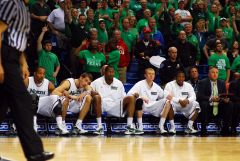SEC forum posting..Hoops to follow FB ..squeze out
-
Who's Online 33 Members, 4 Anonymous, 328 Guests (See full list)
- wardly
- Matt
- Glory to the Green
- Green Mean
- cwb
- yyz28
- drycreek
- Meangreen Fight
- All About UNT
- CMJ
- meangreen2016
- GrandGreen
- MeanGreenZen
- GoGreenBeans
- GreenGonzo
- untphd
- SUMG
- Big Z
- GMG_Dallas
- ColoradoEagle
- flylikeaworm
- TheReal_jayD
- Matt from A700
- Shark84
- Monkeypox
- j5f8k
- Cooley
- UNTcrazy727
- UNTLifer
- BonfireBrian
- TIgreen01
- MeanGreen2024
- golfingomez
-
Images













.jpg.2c34139d28f511fc91b929fa21c6b081.thumb.jpg.34e326535d3dc1a502adf551cec2bd5a.jpg)












Recommended Posts
Join the conversation
You can post now and register later. If you have an account, sign in now to post with your account.
Note: Your post will require moderator approval before it will be visible.